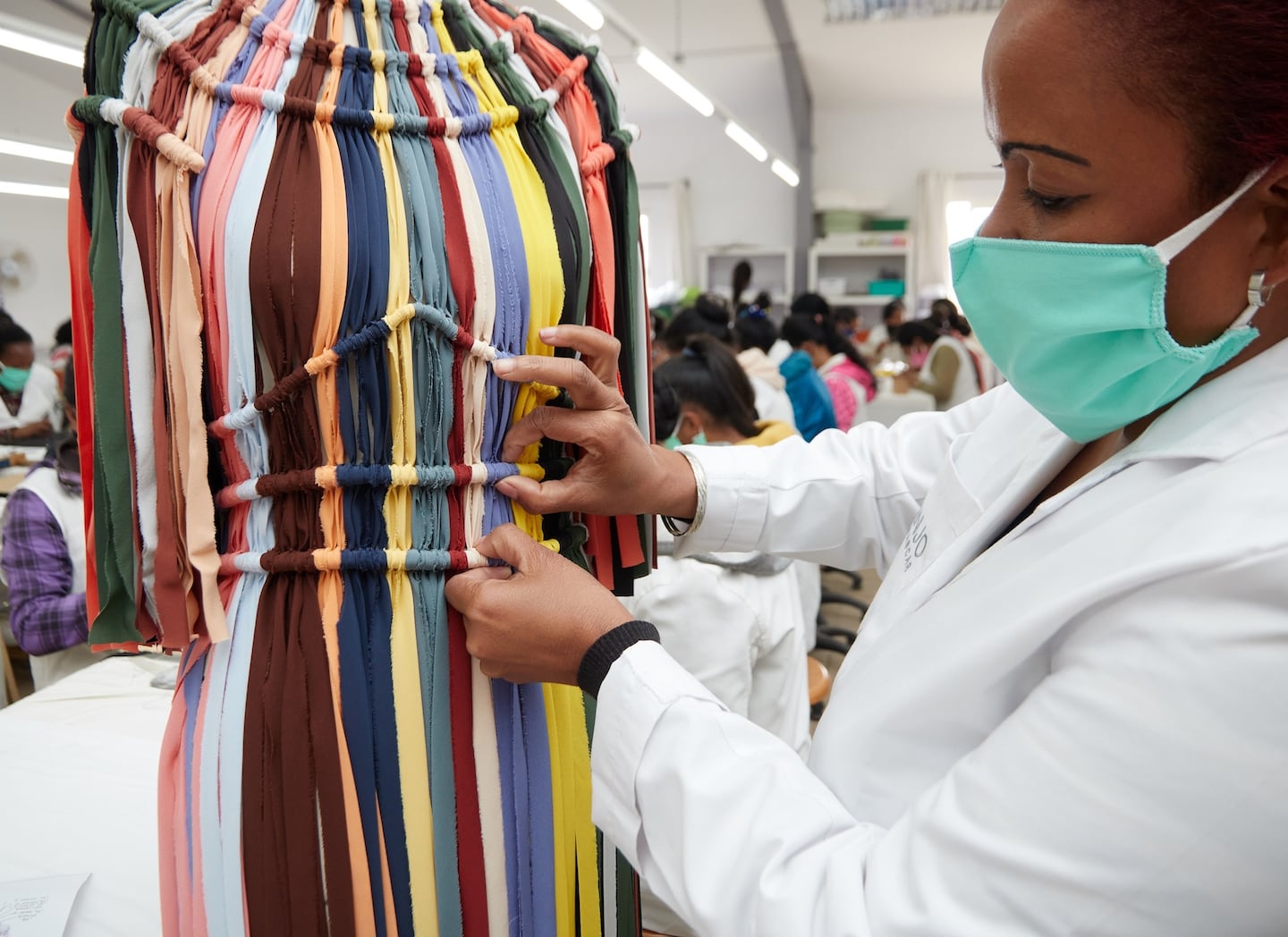
The Business of Fashion
Agenda-setting intelligence, analysis and advice for the global fashion community.

Agenda-setting intelligence, analysis and advice for the global fashion community.

After becoming luxury’s first major player to become B-Corp certified last year, Richemont-owned Chloé wants to take the lead in understanding fashion’s social impact.
The company said Tuesday that it is working with the Institut Français de la Mode and Conservatoire National des Arts et Métiers to develop a tool that will help brands measure their performance on issues like gender equality, living wages and diversity and inclusion.
The initiative points to growing momentum in the fashion industry to seek more sustainable ways of operating. As scrutiny from investors, regulators and consumers grows, companies are setting increasingly ambitious targets and looking for ways to measure and demonstrate progress.
“To improve yourself in sustainability, you need figures, measurements, KPIs,” said Chloé's CSR director Aude Vergne. When it comes to measuring environmental impact, there are a number of established methodologies, “but to measure your social impact on people’s [lives], on suppliers, it’s more difficult.”
ADVERTISEMENT
Chloé's Social Performance and Leverage (SP&L) tool has been in development for 18 months. Its name is a nod to the well-established Environmental Profit and Loss, or EP&L, methodology used by rival luxury group Kering, and points to Chloé’s ambitions to develop a tool that is used industry-wide (though, unlike the EP&L, the SP&L will not put a financial value on social impact).
The brand has also found ways to weave its heritage into the initiative: the tool draws on the work of French economist Philippe Aghion, the son of Chloé founder Gaby Aghion, to create a measurement for “job quality.”
In January, Chloé road-tested the tool on its Spring 2022 ready-to-wear collection The results enabled the brand to move away from a conversation focused on compliance to a more constructive dialogue with suppliers, Vergne said.
Later this year, the company plans to launch an industry-wide consultation process to further test the methodology before providing it as an open-source tool in 2023. The tool was developed for the fashion industry, rather than hard luxury where many of Richemont’s brands focus, but Chloé is discussing with the group’s other fashion maisons about adopting the tool more widely, Vergne said.
Learn more:
Inside Gabriela Hearst’s New Chloé
The eco-minded entrepreneur and freshly installed Chloé designer talks to Tim Blanks about her creative vision for the French house.
The fashion industry continues to advance voluntary and unlikely solutions to its plastic problem. Only higher prices will flip the script, writes Kenneth P. Pucker.
The outerwear company is set to start selling wetsuits made in part by harvesting materials from old ones.
Companies like Hermès, Kering and LVMH say they have spent millions to ensure they are sourcing crocodile and snakeskin leathers responsibly. But critics say incidents like the recent smuggling conviction of designer Nancy Gonzalez show loopholes persist despite tightening controls.
Europe’s Parliament has signed off rules that will make brands more accountable for what happens in their supply chains, ban products made with forced labour and set new environmental standards for the design and disposal of products.